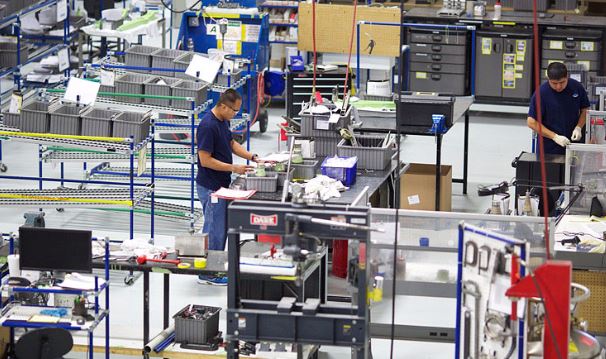Discrete Manufacturing Companies
Broadly speaking, the term discrete manufacturing refers to production of finished goods with distinct features. The products are discrete, easy to count, and can be touched and seen. Automobile, furniture, toys, airplanes are examples of discrete manufacturing products.

Challenges for Manufacturing Companies and their Products
One of the key concerns of discrete manufacturing companies is how to get their products to the market before competition. Irrespective of whether its plastic packaging machinery or spare auto parts or toys, there is always pressure for quality products that are more innovative, have a shorter production cycle, and comply strictly to environmental and safety regulations.
Despite the evolving market and the constant demand for advanced product quality, discrete manufacturing companies still rely on archaic systems. The manufacturing processes are not integrated. But today, there are professional companies that offer business management solutions specifically designed to improve the responsiveness of discrete manufacturing companies — both big and small — to the market.
Coping with New Market Dynamics
Discrete manufacturing companies have to cope with and adapt to global market dynamics. With the manufacturing operations evolving rapidly, companies are facing major supply chains challenges they had not faced before. Getting hundreds of components and parts sourced from all over the world to a central location or multiple locations is no easy task. To efficiently manage their global operations, discrete manufacturers are opting for IT solutions. Manufacturers are embracing several changes to help prevent any adverse impact to their supply chains.
Changes that Need to be Made
There are several factors that can cause stress to the supply chain and adversely affect logistics. Some of them are listed below:
- More competition in pricing means that a manufacturer has to achieve more while using less. With the overall manufacturing cost rising owing to a combination of increase in costs of labor, energy and raw materials, manufacturers are forced to move their operations overseas
- Lately, the developmental time is getting squeezed. This means manufacturers have a very small window to recover their investments
- There is a significant reduction in OTC or O2C, the order-to-cash cycle. This reflects prompt fulfillment of customer requests. But if a manufacturer does not have the right kind of IT systems, it could translate into significant payment delays that can hurt his business operations.
- Today, efficient IT solutions are required to engineer products to suit the changing taste and needs of customers.
- With the global market now being a reality, the competition to manage costs is becoming more acute. The only way to stay competitive is to make investments in IT. It is the only way to maximize efficiency of supply chain. When the right product is developed and delivered at the best price to the right place at the right time, it eliminates the need for an overfull inventory for manufacturers.
For competitive discrete manufacturing companies to succeed in the game, they need an evolving IT infrastructure.


























